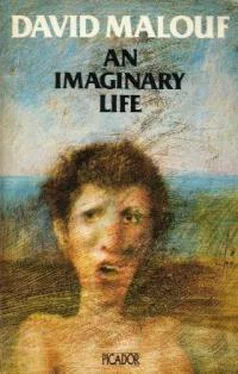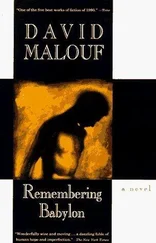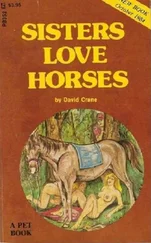My mind moves out continually to the deer forest and the Child. How does he survive out there? Naked. Unhoused. I see him often in my sleep, a ghost moving over the snow among the birches, chewing at lichen, digging under the ice for mold. Can he survive this season? Will the men find his tracks next year? I am impatient for the weather to soften so that I can urge the old man, Ryzak, to make up a party and search for him. It is my secret. I will speak out nearer the time. It is what keeps me alive in all this. Meanwhile, night after night, I hunt the Child in my sleep. I warm him with my breath. Or is it the breath of some animal that warms him, wolf or deer, even there in my dreams? Or does he perhaps sleep out the winter like one of the creatures, curled up in some hollow and tied to the continuance of things only by his own slow breathing? And if so, how is he fed? And what does he dream of? Does he dream? He is the wild boy of my childhood. I know it now. Who has come back to me. He is The Child. Two events give shape to these white months. One was the first news in our village, cried from street to street and beaten out with the wooden gongs, that the Dacians had taken and burned one of the towns to the north and were streaming toward us over the river. The other, which followed almost immediately, was their attack on us.
The river, long before the year’s end, had begun to freeze. Five- thousand paces wide, it was now a bridge of solid ice, and the Dacian horsemen, hundreds of them, poured from the northern plain and were thundering across it. We had to man the walls of our village against them, and I too was called upon to turn out with one of the companies, given a lance and helmet - I who have lived through fifty years in an empire at peace with itself and never done a day’s drill - and sent to stand behind the palisade in the cold night air, unrecognizable under my mountain of fur.
I am taken with the irony of it. As a Roman citizen of the knightly order, the descendant of a whole line of warriors, with the law and the flower of Roman civilization to protect against the barbarians, I scoffed at such old-fashioned notions as duty, patriotism, the military virtues. And here I was, aged fifty, standing on guard at the very edge of the known world. To protect what? A hundred or so mud and wattle huts, three hundred savage strangers who do not even speak my tongue. And of course, my own skin.
As it happened, on the night the raiders came I was in bed, and had to be shaken awake by one of the women. I heard it too then. The thunder of their hooves on the ice, the wooden gongs beating, the voices in the dark. Ghostly figures out of the north, out of my dream, galloping in across the wide arc of moonlight that was water only a few weeks ago. I stumbled out. Arrows rained out of the sky and fell in the thatch, struck a poor fellow watching at the corner of the stockade, and he fell, writhing. The arrows are tipped with poison. The wound festers and stinks, and for three days the man whose body has been struck is in delirium, finding hiw way slowly out into the grasslands beyond the river to the place where the earth will receive him. All night they swirled round and round the stockade, yowling, yelping like wolves, and the arrows fell. In the morning they were gone, and all the brush to the southeast was aflame. Great clouds of smoke rolled back over us, black, bitter with the smell of thorns. They have passed on to one of the settlements on the Thracian side. And now it is spring.
I have spoken to the old man about a search party (I have enough of their language now to make the most pressing of my wants known to people) but he seems unwilling to commit himself. Is he afraid? Does some superstition exist about the Child? Was the shaman’s trance song, which I took to be some sort of blessing on the deer hunt, in reality a ceremony for the Child? Where do these people believe the Child comes from? The gods? Do they think he is one of their own people? Is he? Or a child perhaps from the grasslands to the north, who has been lost here in one of the raids?
I have not told the old man that I know the Child, and used to speak to him when I was a boy at Sulmo. Nor have I admitted to him that I want to capture the boy and bring him here among us. Only that I need to assure myself that he has survived into another season; which the old man believes readily enough, since they think me mad anyway, endlessly in a ferment about things they care nothing for, fussing about notions in my own head. But day after day the old man makes excuses. The palisade has to be repaired, and they have to make a long trip north to the pine forests for timber. Then an old man in the village dies, and the whole male population has to make a two day funeral journey to see him interred. Then the fish are running. A whole week is taken up while the men row out with nets day after day and take them. Then another period when they go out with lanterns after the squid. Is the old man simply humoring me? Must we wait, as before, for autumn? It is autumn. Tomorrow we go again to the birch woods after deer. I dare not mention the Child. We ride out in the same way as before, make the same detour up to the plateau and through the screen of pines to where the dead ride high on their fleshless horses. Only this year the cold has come early. The plateau is in cloud, gray mists swirl across before us and the poles click and sway. The shouts of the men as they ride round scattering their handfuls of seed are dampened by fog, cut off and blown back into their throats.
On the way to the woods it drizzles. There are no tracks. The earth underfoot is soggy and the horses splash through puddles of brilliant blue light amongst the leaves, or through dirty-gray clouds. We hunt deer. Flay them, butcher the meat and load it in panniers. There is no sign of the Child. The other men look anxiously about them and are glad when we can get away. I am crazy with disappointment and grief. Another winter. How can he survive? How can I survive, without knowing he is still there?
Another spring.
I understand all that is said to me now in this crude tongue, by these plain but kindly people. I have begun to teach the old man’s grandson Latin, to write it, and to recite poems. Some of them my own. He is a bright child, but of a sullen disposition, and he sees no use in what he learns. Listening to the old man now, telling his stories in our little yard, I know what the different voices signify: they are the north wind, they are wolves, they are giants, they are the ghosts of warriors, they are a shinbone, a severed head, they are the bottom of the sea. The old man’s stories are fabulous beyond anything I have retold from the Greeks; but savage, a form of extravagant play that explains nothing, but speaks straight out of the nightmare landscape of this place and my dream journeys across it. Our civilized fables that account so elegantly for what we see and know seem feeble beside these elaborate and absurd jokes the old man mutters over. They are like winter here. They fill the world. They make the head buzz, they numb the blood. They seem absolutely true and yet they explain nothing. I begin to see briefly, in snatches, how this old man, my friend, might see the world. It is astonishing. Bare, cruel, terrible, comic. And yet daily he seems nobler and more gentle than any Roman I have known. Beside him I am an hysterical old woman. Utterly without dignity.
It begins to be autumn again. There is a smokiness in things.
Once again we go to the birch woods.
Almost immediately, in the golden light of a fine autumn day, with the sky broken in rain pools among the drifts of yellow leaves, he is there, standing quite still and taller after these two years, among the slashed birches. I am filled with joy. He is there. He is real. The others see him too. He is streaked with mud, with bony knees and elbows and a shrunken belly. An ugly boy of eleven or twelve with a bird’s nest of dirty hair. We are sitting, five of us, in a circle, drinking a little of the thin soup we have brought with us, while the horses wander among the birches, grazing off what blades of grass still push up through the leaf mold. It is late afternoon. Still. We hold our cups in both hands, drinking, not speaking, and suddenly the boy is there, watching us. The men’s eyes dark over the rim of the cup and their fingers grimy. We all look. First at the boy then at one another, and are frozen. Even the horses cease grazing and raise their heads against the watery blue of the afternoon, sniffing, scenting another presence. I can hear our breathing. It is as if were all, for a moment, charmed. As if time had stopped. And I feel that if we could sit like this long enough, cross-legged on the leaves, so that it seemed like another part of the wood; if we let our spirits out, shaking them loose, and became wood, leaf, mold, lichen - he would come to us. The others, I know, are afraid. Their stillness is a sort of terror. These men who are not afraid of whirling horsemen in the night with poisoned arrows and firebrands, or of a wild boar with its tusks foaming, are afraid of the Child. I am not. My stillness is for fear that we may, even with the lifting of a finger or the catching of a breath, startle him into flight.
Читать дальше












